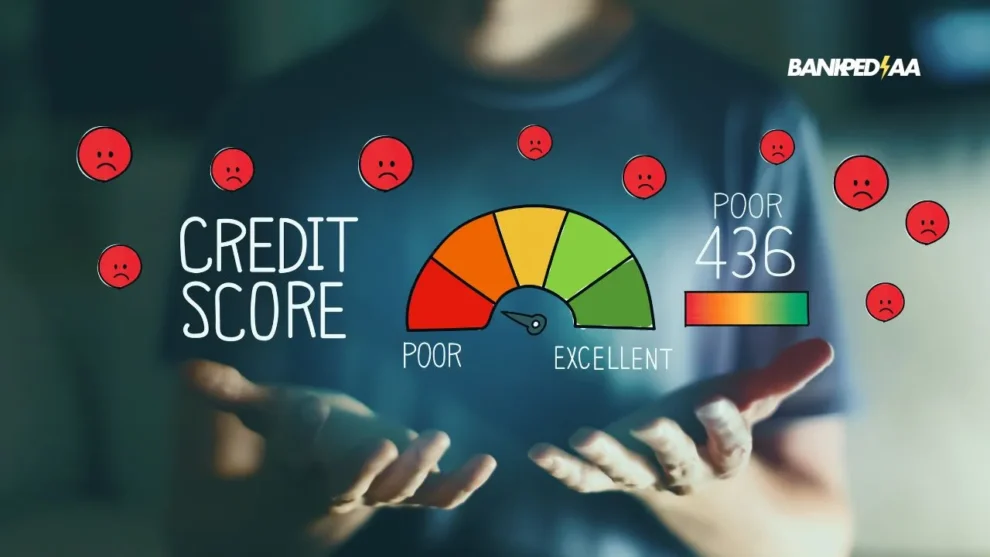By Yogesh, Founder of BANKPEDIAA
As a finance expert with 8 years of experience in banking, I’ve seen many young individuals struggle to understand the concept of credit scores. With 3 years of experience in handling loan seats, I’ve gained valuable insights into the importance of credit scores in securing loans and maintaining good financial health.
In this article, I’ll break down the basics of credit scores in India, specifically for the young generation aged 18-45.
What is a Credit Score?
A credit score is a three-digit number that represents your creditworthiness. It’s calculated based on your credit history, payment behavior, and other factors. In India, credit scores range from 300 to 900, with higher scores indicating better credit health.
The Story of Rohan and his Father
Rohan, a bright young boy, and his father, Mr. Kumar, walked into my office, seeking guidance on securing an education loan for Rohan’s higher studies. As we discussed their options, I suggested checking their credit scores to determine their eligibility.
Rohan, being a young adult, had never taken a loan or credit card before. His credit report showed “NO HIT” in CIBIL, indicating he had no credit history. This is common for individuals who haven’t borrowed money before.
Mr. Kumar, however, had an established credit history. His credit score was 767, which is considered good. I explained to them that a credit score of 750 or above is generally considered good in India.
What is a Good Credit Score?
A good credit score indicates a borrower’s creditworthiness and responsibility in repaying debts. In India, credit scores range from 300 to 900. Here’s a rough breakdown:
- 750-900: Good credit score, eligible for loans and credit cards at competitive interest rates.
- 700-749: Fair credit score, may face slightly higher interest rates or stricter loan terms.
- 650-699: Poor credit score, may face higher interest rates, stricter loan terms, or loan rejection.
- 600-649: Bad credit score, may face loan rejection or very high interest rates.
- Below 600: Very bad credit score, likely to face loan rejection.
What is NO HIT in CIBIL?
When someone has no credit history, like Rohan, their credit report shows “NO HIT” in CIBIL. This means:
- They haven’t borrowed money before.
- They don’t have a credit score.
- They’re considered a new borrower.
Lenders may view “NO HIT” as a neutral or slightly positive factor, as it indicates no negative credit history. However, it may also lead to stricter loan terms or higher interest rates, as the lender has limited information about the borrower’s creditworthiness.
Rohan’s “NO HIT” in CIBIL and Mr. Kumar’s good credit score of 767 demonstrated the importance of maintaining a healthy credit profile. I advised Rohan to establish a good credit history by making timely payments on his education loan, and Mr. Kumar to continue his responsible credit behavior to maintain his good credit score. By understanding credit scores, they can make informed financial decisions and enjoy better loan terms in the future.
Read Suggestions: 7 Ways to Boost Your Emergency Fund in India
Why is a Credit Score Important?
A good credit score can help you:
- Secure loans: A high credit score increases your chances of getting approved for loans and credit cards.
- Get better interest rates: A good credit score can lead to lower interest rates on loans and credit cards.
- Improve financial health: A credit score reflects your financial discipline and responsibility.
How is a Credit Score Calculated?
In India, credit scores are calculated by credit bureaus like CIBIL, Experian, and Equifax. The calculation is based on:
- Payment history (30%): On-time payments, late payments, and defaults.
- Credit utilization (25%): Credit card balances and loan amounts.
- Credit age (20%): Length of credit history.
- Credit mix (20%): Types of credit accounts (loans, credit cards, etc.).
- New credit (5%): New credit inquiries and accounts.
Get Free Credit Score and Report
Tips to Improve Your Credit Score
- Pay bills on time: Late payments negatively affect your score.
- Keep credit utilization low: Maintain a credit utilization ratio below 30%.
- Monitor your credit report: Check for errors and discrepancies.
- Avoid multiple credit inquiries: Limit credit applications to avoid negative impact.
- Build a long credit history: A longer credit history positively affects your score.
Conclusion
Understanding credit scores is crucial for maintaining good financial health. By following the tips outlined in this article, you can improve your credit score and enjoy better financial opportunities. Remember, a good credit score is a valuable asset in achieving your financial goals.














